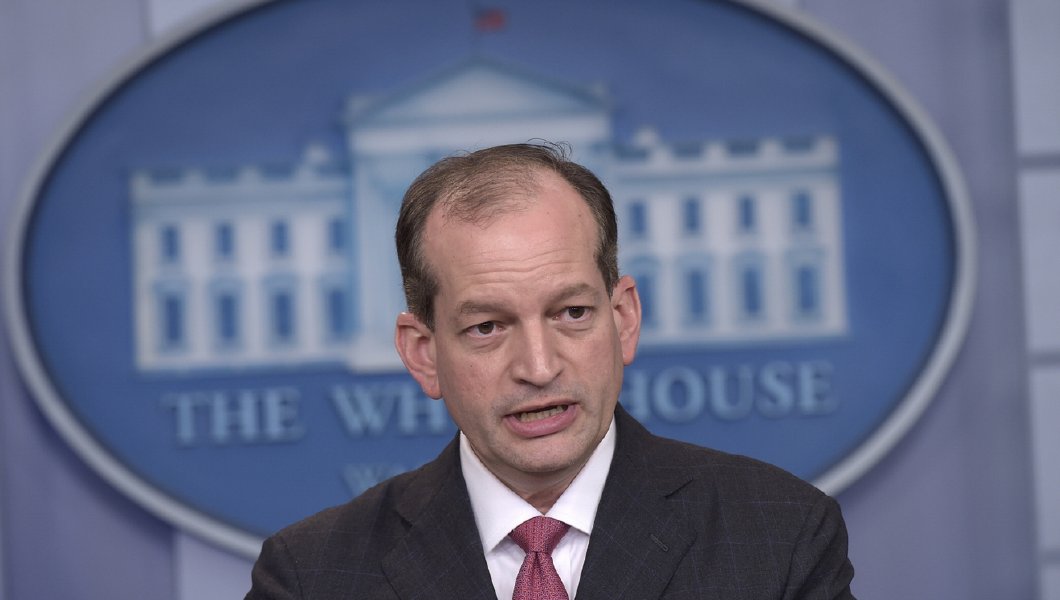Joining the list of the Trump administration’s many firings, resignations, and shakeups is the resignation of Alex Acosta on July 12. Acosta was the Secretary of Labor.
Because of Acosta’s position and his replacement, his resignation presents a concerning question for employers: how will workplace safety be affected by the new acting Secretary of Labor? Will it improve? Worsen? Stay the same?
Here, we’re taking a closer look at Acosta’s resignation and what it means for everyday employers and standards of workplace safety.
Understanding the Acosta Resignation
Acosta’s resignation comes on the heels of continuing questions about his handling of a crimes case involving financier Jeffrey Epstein in 2008. At the time of the case, Acosta was a federal prosecutor in Florida.
Epstein pleaded guilty on two counts of felony prostitution, serving 13 months of an 18-month sentence with daily furloughs so that Epstein could go to his office. A federal judge ruled in February that Acosta’s failure to notify Epstein’s victims of the plea deal was a violation of the 2004 Victims Rights Act.
Acosta’s Labor Record
As Labor Secretary, Acosta’s record was relatively smooth.
Acosta was viewed positively by labor activists, who felt that Acosta gave them a fair shot. In the first year and a half of his time as secretary, he drew criticism from the business community for stalling deregulation efforts that businesses would have favored.
That said, Acosta did not have free reign as secretary, particularly once Mick Mulvaney became acting chief. Frequently, when White House aides and Department of Labor heads reached an impasse on regulations, aides would bypass Acosta and take the matter to Mulvaney for a final decision.
However, ultimately, many labor activists considered Acosta to be as good a labor secretary as they could hope for in the current political environment.
Who Is Patrick Pizzella?
Acosta will be replaced by Patrick Pizzella, a longtime lobbyist and government official who has spent years advocating for business interests.
In fact, he’s spent roughly four decades fighting workplace regulation and organized labor. He’s the obvious choice for a White House that wants to stop butting heads with DOL officials, but after Alex Acosta, Pizzella signals a major pivot in DOL leadership.
As such, Pizzella is expected to move far faster than his predecessor in rolling back Obama-era regulations on businesses.
Pizzella has also drawn ire for his previous work with lobbyist Jack Abramoff in the late 1990s and early 2000s. Their goal? To hamper worker protections in the North Mariana Islands.
At the time, there were maximum wage restrictions of $3.05 an hour for foreign workers. When Pizzella worked on Abramoff’s team, the lobbying firm was fighting to prevent Congress from imposing minimum wage restrictions.
How Acosta’s Departure Affects Workplace Safety
So, back to our original question: how will Alex Acosta’s departure affect workplace safety?
The short answer? Negatively.
Most observers expect Pizzella to expedite the deregulation process that Acosta was trying to slow down. Granted, Acosta was more middle-of-the-road and willing to compromise than other potential Trump picks, but he did still appeal to a conservative, business-friendly audience.
The long answer? Unclear.
Acosta proved to be a more moderating influence than expected, and the same could hold true for Pizzella. On the other hand, it might not. Most likely, Pizzella will work against labor (and worker safety) interests, but only time will tell what that means and to what extent.
